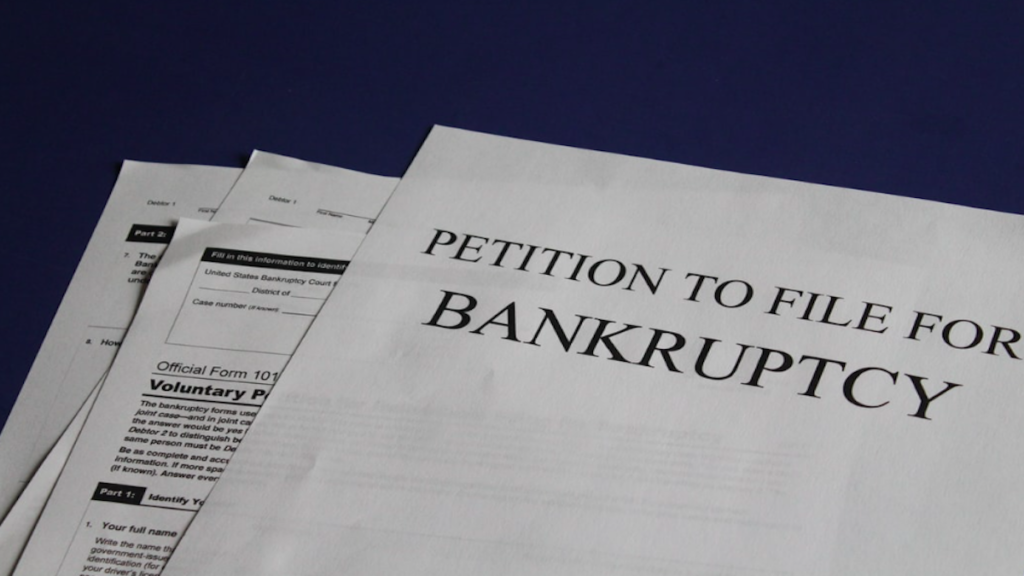Featured image by Melinda Gimpel from Unsplash
Is your business beginning to struggle? If so, you’ll need to decide whether or not to close down. One option you may need to contemplate is the possibility of filing for bankruptcy. When should you seriously consider this option, and is it the best course of action for your business? First, you should understand the different types of business bankruptcy that exist.
Chapter 7 Bankruptcy
This type of bankruptcy requires you to undergo liquidation. In other words, you’ll sell off all the major assets of the business before ultimately closing down. Once filed, the business will no longer exist and the company will cease operations.
First, all of your employees will be dismissed. Next, a court-appointed trustee will take charge of liquidating the rest of the company. The liquidated assets will pay off existing debts, to the extent that they can. This is the most common type of bankruptcy in the United States.
In order to qualify for Chapter 7 bankruptcy, you’ll need to prove that your income is sufficiently low. If your business is still making significant revenue, you won’t be able to file. Once the process is completed, all business debts will be discharged. This means you’re no longer responsible for paying them back. In some instances, business owners are held personally liable for some of these debts. Go here if you wish to consult a seasoned lawyer to effectively start a new chapter with this type of bankruptcy.
Chapter 11 Bankruptcy
In Chapter 11 bankruptcy, you’ll undergo reorganization. In other words, you’ll be able to keep running the business, but you’ll rearrange your debts and finances to better suit you and your creditor’s needs. During this process, managers of the business will remain in control, and in many cases, the business will continue operating as usual. However, this is only possible if the court approves.
Through Chapter 11 bankruptcy, businesses can liquidate some assets, reorganize debt structures, and come up with a formal plan for how they’re going to pay off those debts. Businesses often use this as an opportunity to renegotiate debts with creditors. Also, you may be able to reduce your interest rates or extend the terms of your loans.
Chapter 13 Bankruptcy
Chapter 13 is similar to Chapter 11, however Chapter 13 is reserved for small businesses that have a limited number of creditors and limited amount of debt. You can think of it as a simplified version of the reorganization process. Chapter 13 bankruptcy allows you to continue operating the business as usual, with the court’s approval. You can petition the court to reorganize your debt and negotiate with creditors to come up with a better payment plan. Typically, you’ll have a fixed amount of time to pay back the debt. Normally around 3 to 5 years.
The Consequences of Filing for Bankruptcy
If you’re filing for bankruptcy as a separate business entity, like an LLC or a corporation, the worst consequence is that you’ll have to close down the business for good. In some cases, you may not even have to face that. However, you may find it harder to find business loans in the future, as your business credit score will take a hit. You may have to liquidate some of your assets.
If you’re filing as a sole proprietor or if you’re hoping to discharge personal debts, you may face harsher consequences. There is a chance your personal credit score could plunge. Your personal assets may be seized as well. However, there may be exemptions for certain personal assets, like your home.
Should You Consider Filing?
Bankruptcy is a last-ditch effort for struggling businesses to get out of debt. Is your business is going through a rough patch? Are you worrying about looming debts? Then you shouldn’t immediately turn to bankruptcy. However, if your business is on the verge of collapse or if it’s clear that your business won’t be able to continue operations for much longer, bankruptcy may be one of your best options for discharging or reorganizing debt.
RELATED ARTICLE: SHOULD YOUR SMALL BUSINESS FILE FOR BANKRUPTCY?
The Importance of Working with an Attorney
As you can tell, bankruptcy is a complicated legal process and it’s even more complicated for businesses. If you’re thinking of closing the business or filing for bankruptcy, your best course of action is to speak with a bankruptcy attorney. These legal professionals are well-versed in bankruptcy law. They will be able to provide you with guidance and advice throughout the process.
Bankruptcy isn’t a fun process, even if you’re going through a “milder” form of bankruptcy like Chapter 13. It’s a long and complicated process. It can leave you with lasting consequences, including the complete closure of your business. This is a topic you’ll need to consider carefully and you’ll want to exhaust all other options before resorting to bankruptcy.
RELATED ARTICLE: DON’T LET THE LOSS OF YOUR SMALL BUSINESS LEAD TO PERSONAL BANKRUPTCY
